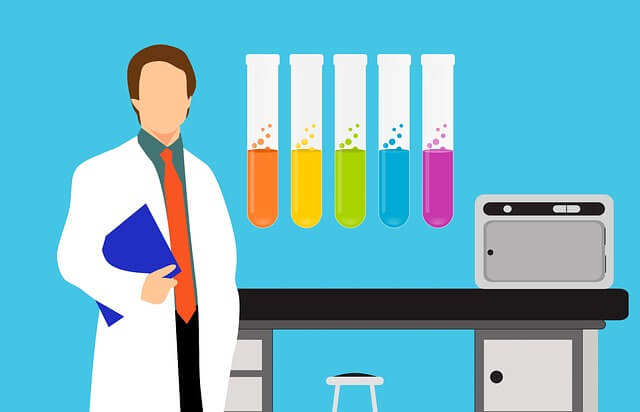As nuclear pharmacists become more in demand, it’s natural to wonder how to become a nuclear pharmacist. Unlike other pharmacy forms, only a few colleges offer training in this field, and you’ll have to become an authorized user of radiopharmaceuticals.
If you want to know more about nuclear pharmacy or already do and want to find out how you can become one, you’ll find the information in this article very useful. Continue to read on for more details!
Nuclear Pharmacy Defined – What is Nuclear Pharmacy?
If you’ve never heard of nuclear pharmacy, let’s start by addressing the most crucial point: What is nuclear pharmacy?
In short, nuclear pharmacy refers to a specialty area of pharmacy and involves preparing radioactive materials for patients. This field is dedicated to compounding and dispensing radioactive materials for the promotion and improvement of health. It ensures that safe and effective use of radioactive drugs is available for use in nuclear medicine procedures.
Although nuclear pharmacy is a specialty field, its operation isn’t much different compared to traditional pharmacy. In both areas, a prescription is filled, and the pharmacist should prepare and dispense it. However, there are some critical differences highlighted below:
| Nuclear Pharmacy | Traditional Pharmacy |
| The dispensing unit used is mCi (milliCurie). | The dispensing unit used is milligrams (ml) or milliliter (ml). |
| The radioactive material is dispensed in liquid or capsule form. | The material is dispensed in tablets or capsule form. |
| Material is dispensed to a hospital or clinic’s nuclear medicine department, where the dose is administered to a patient. | Material is dispensed directly to the patient for self-administration. |
What Does A Nuclear Pharmacist Do?
Besides preparing and dispensing radiopharmaceuticals, nuclear pharmacists can have other responsibilities. If you become a nuclear pharmacist, your list of duties can include the following:
- Administrative tasks including procuring, receiving, controlling, and storing radiopharmaceuticals, related supplies, and other drugs used in nuclear medicine.
- Performing quality tests on radiopharmaceuticals and instruments, devices, and equipment used in nuclear medicine.
- Supervising or supporting the labeling, packaging, and transporting of radiopharmaceuticals.
- Handling biological specimens and hazardous chemicals and overseeing the waste management of such.
- Organizing training programs and communicating radiopharmaceutical-related information to ensure a safe work environment.
- Maintaining safety standards to ensure that patients receive desirable outcomes.
- Performing duties related to the development of new radiopharmaceuticals.
Is Nuclear Pharmacy a Profitable Career?
Since nuclear pharmacists are high in demand, this field of pharmacy is considered a well-paid profession. According to the latest US statistics, a Nuclear Pharmacist can earn a six-figure annual income with an average pay-rate of $50 an hour.
How to Become a Nuclear Pharmacist
Nuclear pharmacy requires specialized certification. Like you would become a regular pharmacist, you need to graduate from a pharmacy program and have an active license to practice regular pharmacy. After that, you can move forward by completing 4,000 hours of training as a nuclear pharmacist. Once your training hours are completed and signed off, you’ll have to pass the Nuclear Pharmacy Specialty Certification Examination to qualify as a Nuclear Pharmacist.
You can earn your 4,000 hours of training in the following ways:
- Completing nuclear pharmacy practice in an authorized nuclear pharmacy or health care facility. Credits are based on hour-for-hour training to a maximum of 4,000.
- Completing a residency in nuclear pharmacy. Credits are based on hour-for-hour training to a maximum of 2,000.
- Completing an internship in an authorized nuclear pharmacy or health care facility. Credits are based on hour-for-hour training to a maximum of 2,000.
Frequently Asked Questions
Knowing what nuclear pharmacy is and how you can become a pharmacist in this field is important, but there are some other factors to consider before deciding on this career path. Below we cover them in some frequently asked questions relating to nuclear pharmacy.
Is Nuclear Pharmacy safe?
Although nuclear pharmacy involves working with radioactive materials, radiation exposure is extremely low, and adequate radiation safety training is compulsory yearly.
Is it hard to become a Nuclear Pharmacist?
Pharmacy is a challenging major, and statistics show that more than 10% of first-year applicants don’t make it to graduation. Furthering your training to become a Nuclear Pharmacist takes a lot of commitment, motivation, and a genuine passion for this field of pharmacy.
Is working with radiopharmaceuticals stressful?
Being a nuclear pharmacist can be extremely satisfying, though heavy workloads and long hours can lead to stress. Having stress management skills is critical if you want to become a Nuclear Pharmacist.
How do I know if a career in nuclear pharmacy is for me?
Although the criteria of knowing whether a specific career path is for you is based on your individual desired outcomes, consider a career in nuclear pharmacy if you can relate to the following:
- Your goal is to improve patient outcomes.
- You want to bepart of and have an impact on your community.
- You’re a team player and would like to become part of a healthcare team.
- You’re eager to be part of the growth in the radiopharmaceutical industry.
Choosing a career can be a daunting decision to make. Before you commit, you must evaluate all aspects of your desired career path. After reading this article, gaining some insight into what nuclear pharmacy is, and having a better idea of how to become a Nuclear Pharmacist, you’re hopefully one step closer to making a career choice that’s right for you.


